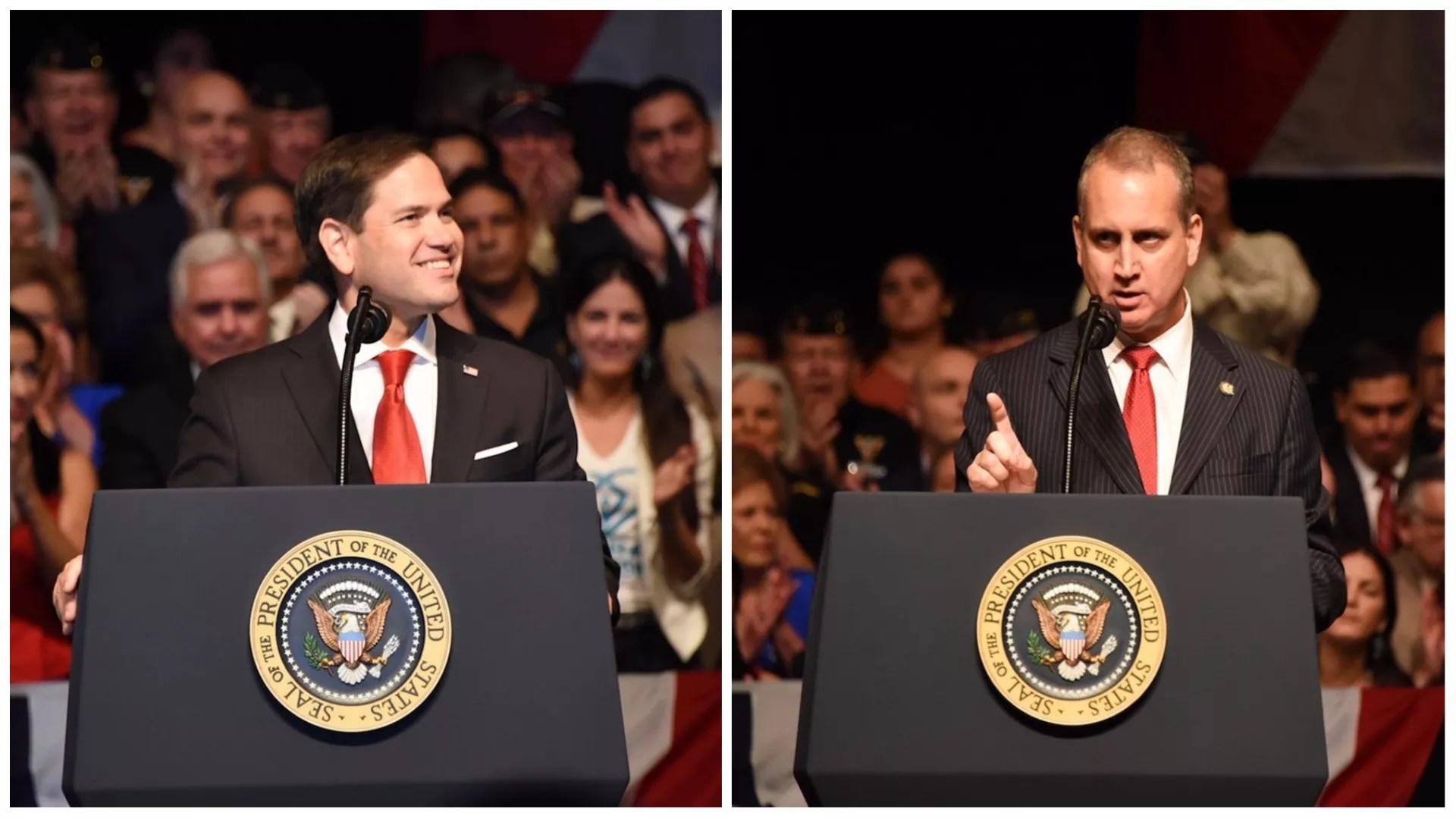
Photos by Michele Eve Sandberg

Audio By Carbonatix
Americans are blessed to live in a nation where cable companies can’t charge consumers extra money to access Netflix or block them from reading the New York Times online just for the heck of it. But telecom companies sure seem like they want that power, and the Federal Communications Commission (FCC) is now chaired by a former Verizon lawyer and internet-service-provider lackey. This week, Ajit Pai openly said he wants to end so-called net neutrality rules enacted under the Obama administration, which guarantee that telecoms can’t lump websites into “packages” and charge customers to access various tiers, as is done with cable TV – which everyone, including most working-class Republicans, hates.
Thus, information-loving Americans must now hope their federal legislators fight Pai’s FCC and pass laws defending net neutrality. This battle requires the help of lawmakers who are not monsters and shills for telecom companies – and two Miami lawmakers, Congressman Mario Diaz-Balart and U.S. Sen. Marco Rubio, appear to be both. Here’s why you should call them to demand they enforce net neutrality.
Marco Rubio has repeatedly tried to kill net neutrality laws.
In March 2015, when the FCC moved to protect net neutrality under Obama, Politico published an op-ed by Rubio titled “Government Is Crashing the Internet Party,” which was immediately mocked. The piece included passages such as this one:
First, while the FCC plan supposedly seeks to prevent ISPs from playing favorites, it does so by giving that power to another entity: government. This is illogical, particularly because the federal government is adept at rigging the economy in favor of powerful interests. The answer to correcting injustice in an economy is to increase consumer power, not government power.
Second, the issue of ISPs creating different speed lanes is not the injustice that it is made out to be. There are hardly any cases of it to begin with, and any deals that do take place are just as likely to benefit consumers by allowing highly trafficked sites to accommodate their visitors. This is why FCC Commissioner Ajit Pai, who voted against the plan, called it “a solution that won’t work to a problem that doesn’t exist.”
Ah, yes: Slowing access to websites is actually good! And cable companies don’t want to do that anyway! They promised!
Net Neutrality rules will hurt innovation & job creation: http://t.co/G649Tts4 #sayfie #netneutrality
— Marco Rubio (@marcorubio) November 9, 2011
But he didn’t stop there: In 2016, Rubio cosponsored the Orwellian “Restoring Internet Freedom Act,” which would have rescinded the FCC’s protections had it not been a transparently evil bill that even his colleagues were too afraid to pass. He reintroduced the same bill again this year.
Oh, and he’s accepted hundreds of thousands of dollars from the telecom industry.
You can reach Marco Rubio’s office by dialing 202-224-3041.
Mario Diaz-Balart is an OG net neutrality hater.
As early as 2006, before the phrase “net neutrality” grew into the household term it is today, Diaz-Balart was still voting against protecting the internet against meddling telecoms.
Then, in 2011, House Republicans tried to sneakily defund the FCC’s neutrality provisions by amending another bill to include passages stripping money from the FCC. That plan, though devious, ultimately failed. But Diaz-Balart was one of the GOP members most staunchly in favor of the idea.
“If you believe that the miracle of innovation [the Internet] took place… because the government got out of its
Oh, and he’s also accepted tens of thousands of dollars from the telecom industry.
Call Mario Diaz-Balart’s Washington office at 202-225-4211.
So what about everyone else?
Call them too. Call Miami Rep. Carlos Curbelo, who tends to be more moderate than Rubio and Diaz-Balart but still voted in line with them earlier this year to let cable companies sell your private data without your consent. Call Rep. Ileana Ros-Lehtinen even though she’s the most moderate Republican of the bunch. Hell, call Sen. Bill Nelson and Reps. Debbie Wasserman Schultz and Frederica Wilson too even though they’re Democrats. Call everybody.
Reach Curbelo at 202-225-2778, Ros-Lehtinen at 202-225-3931, Nelson at 202-224-5274, Wasserman Schultz at 202-225-7931, and Wilson at 202-225-4506.